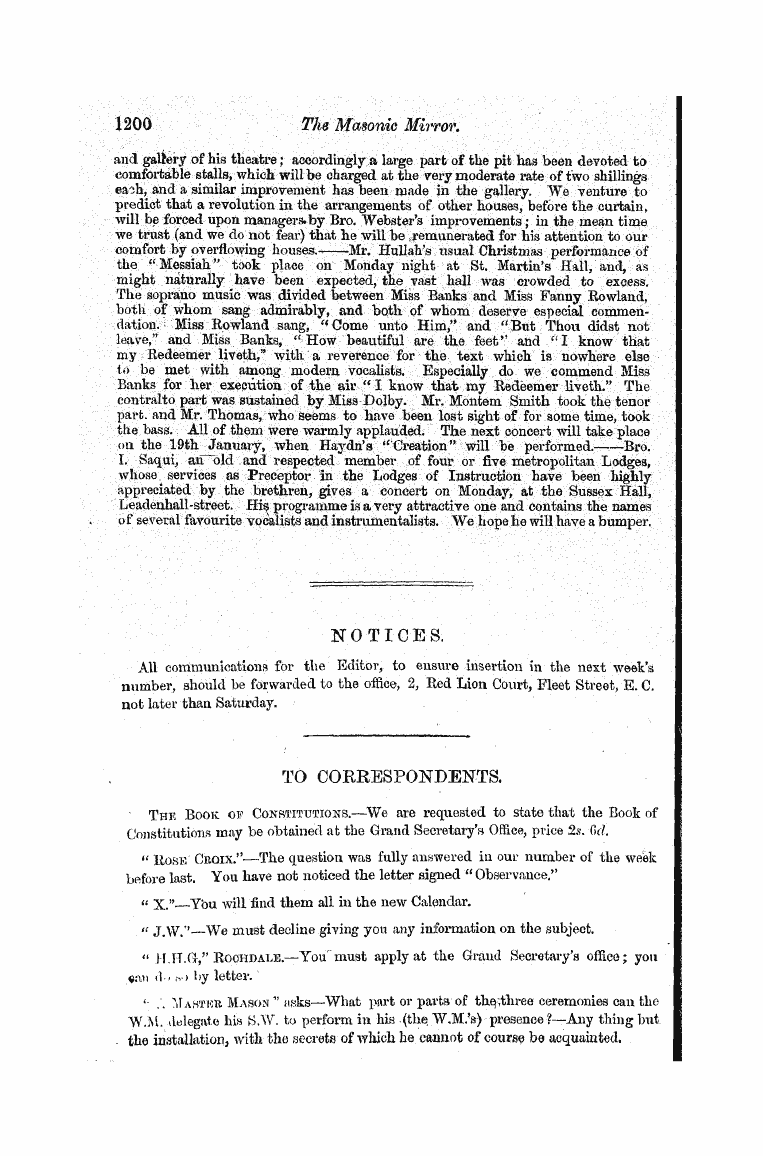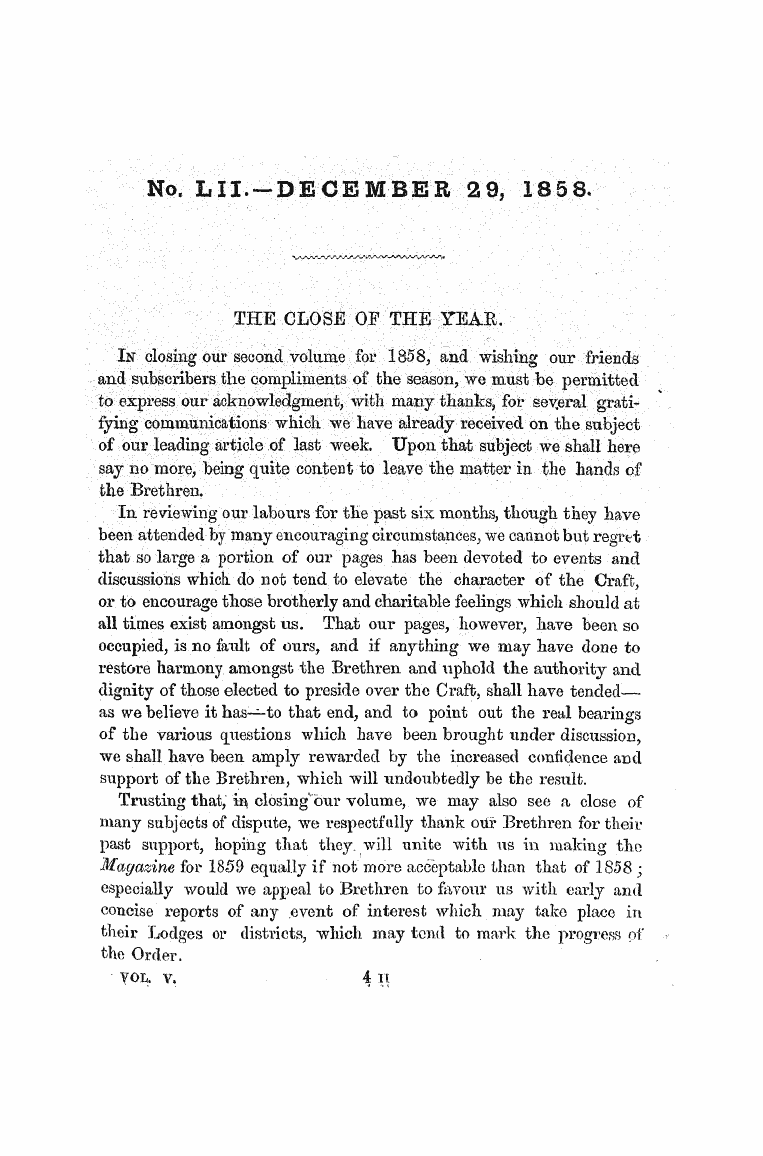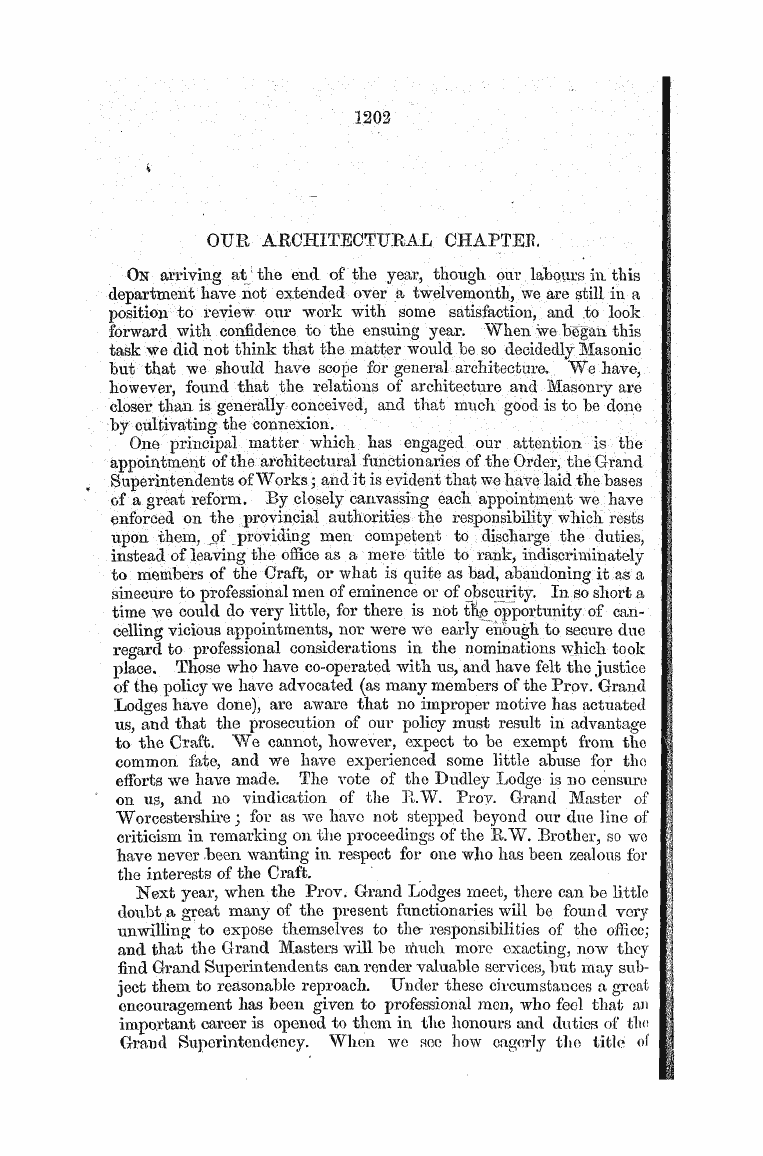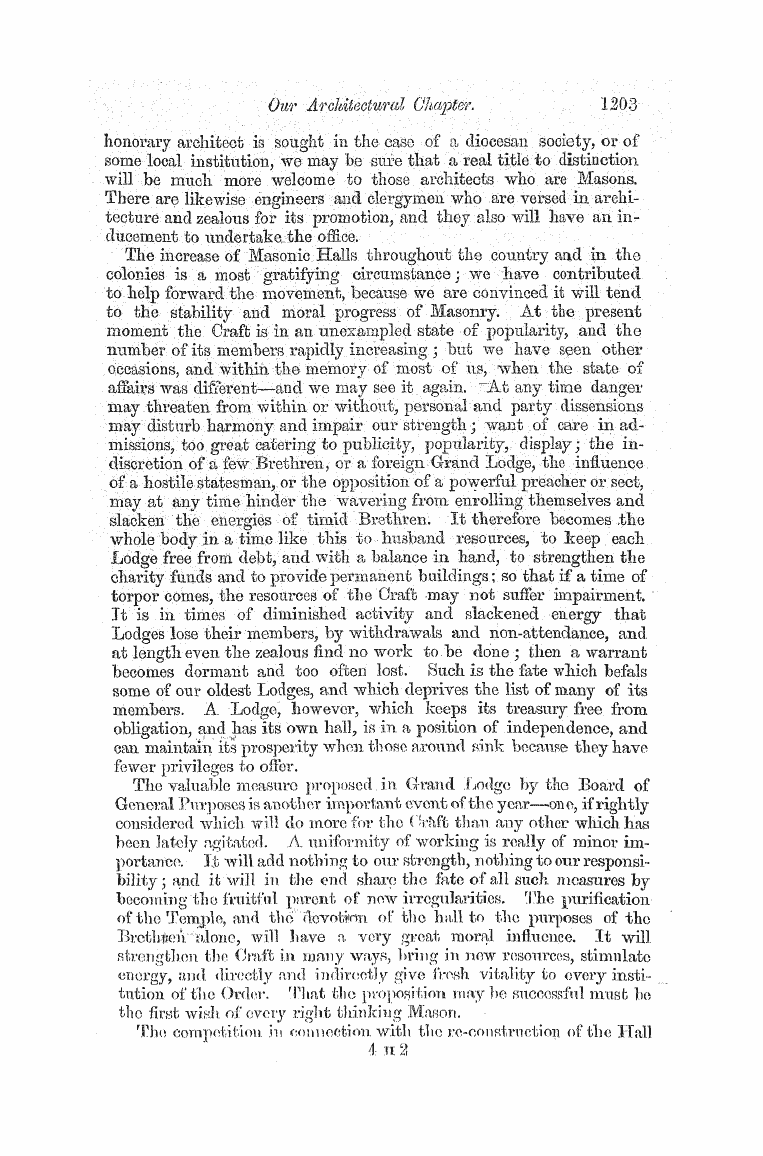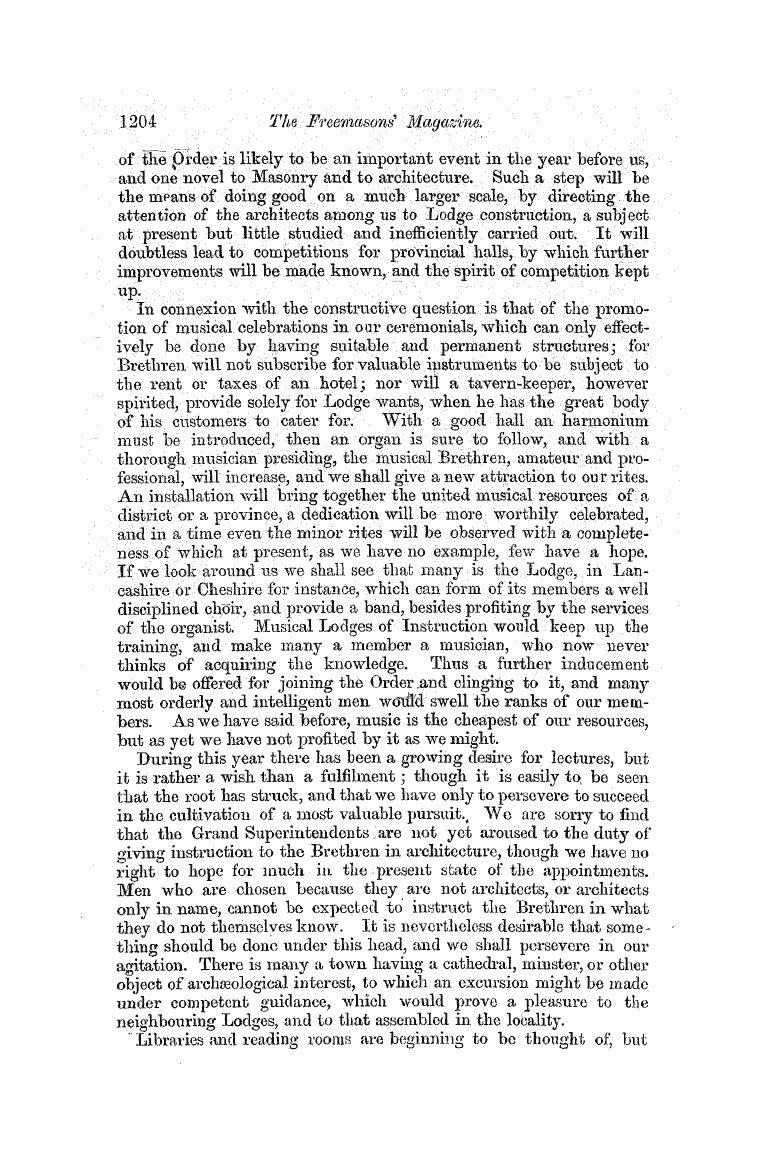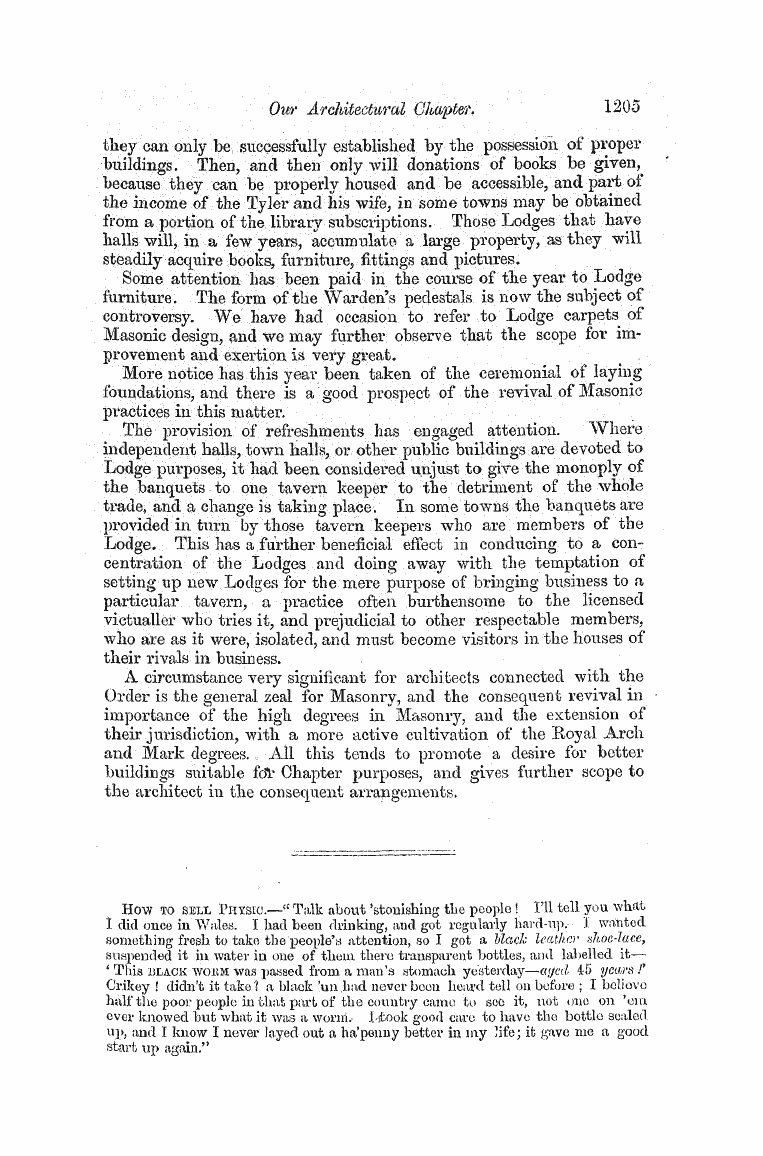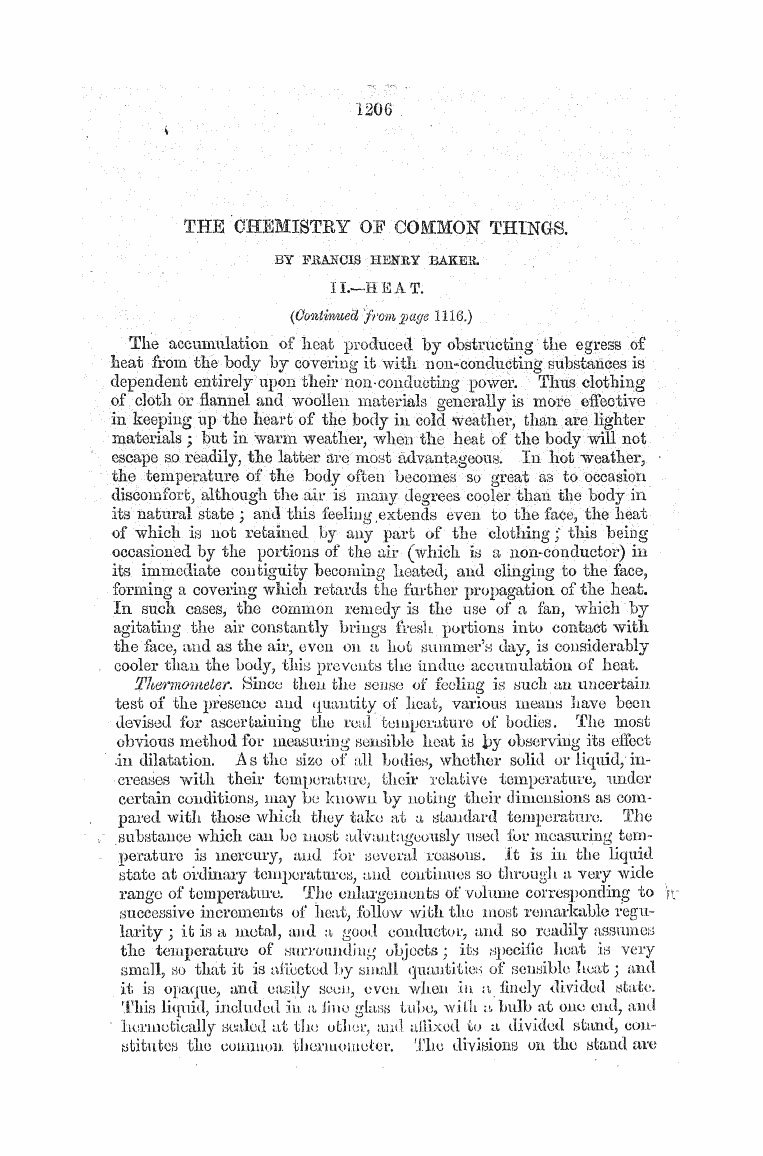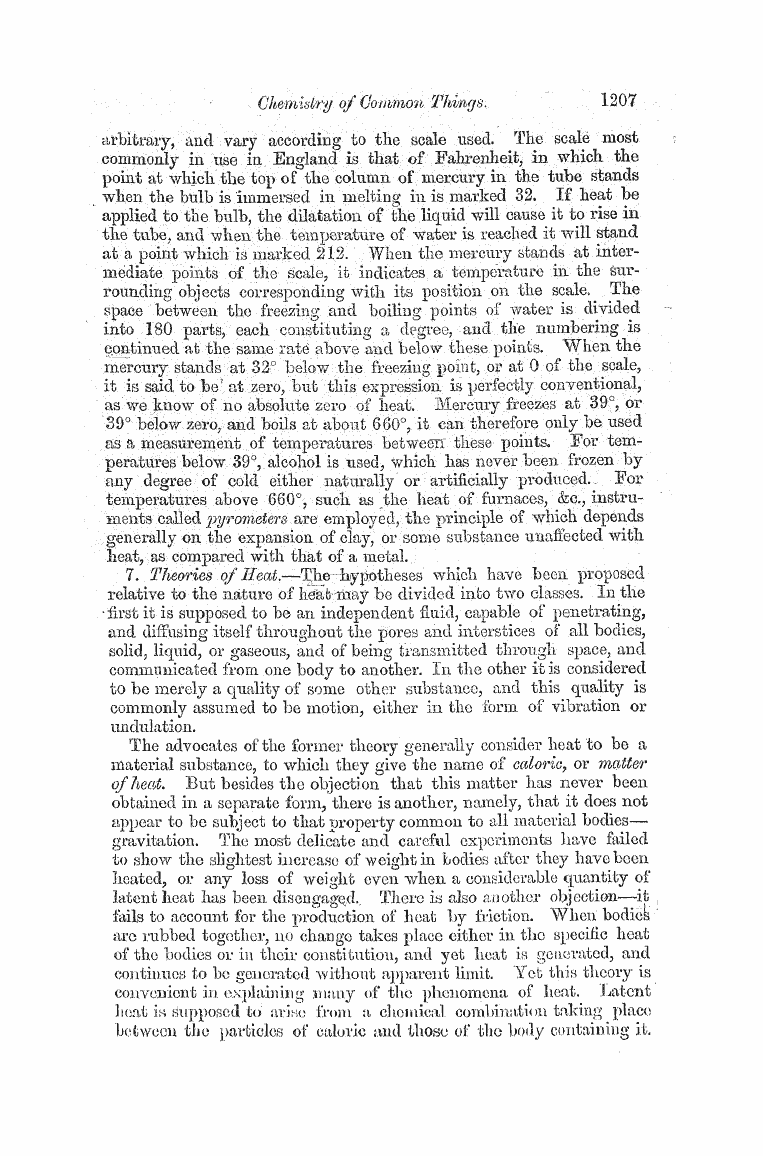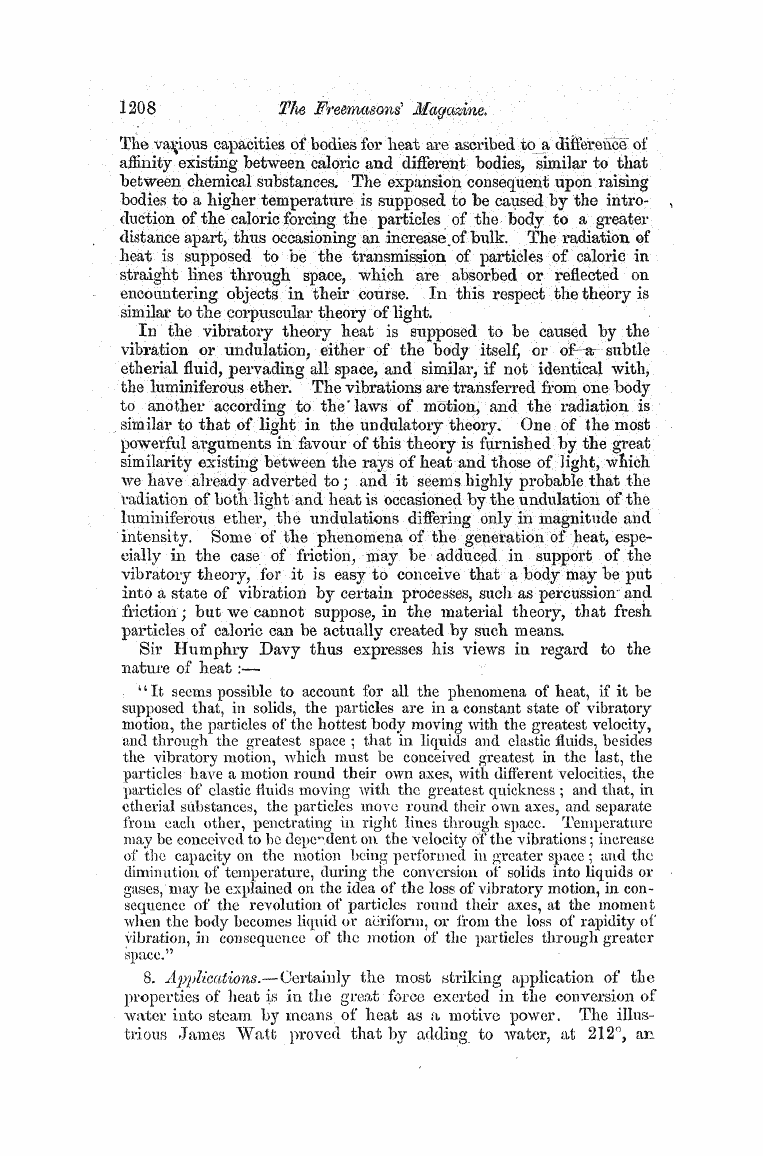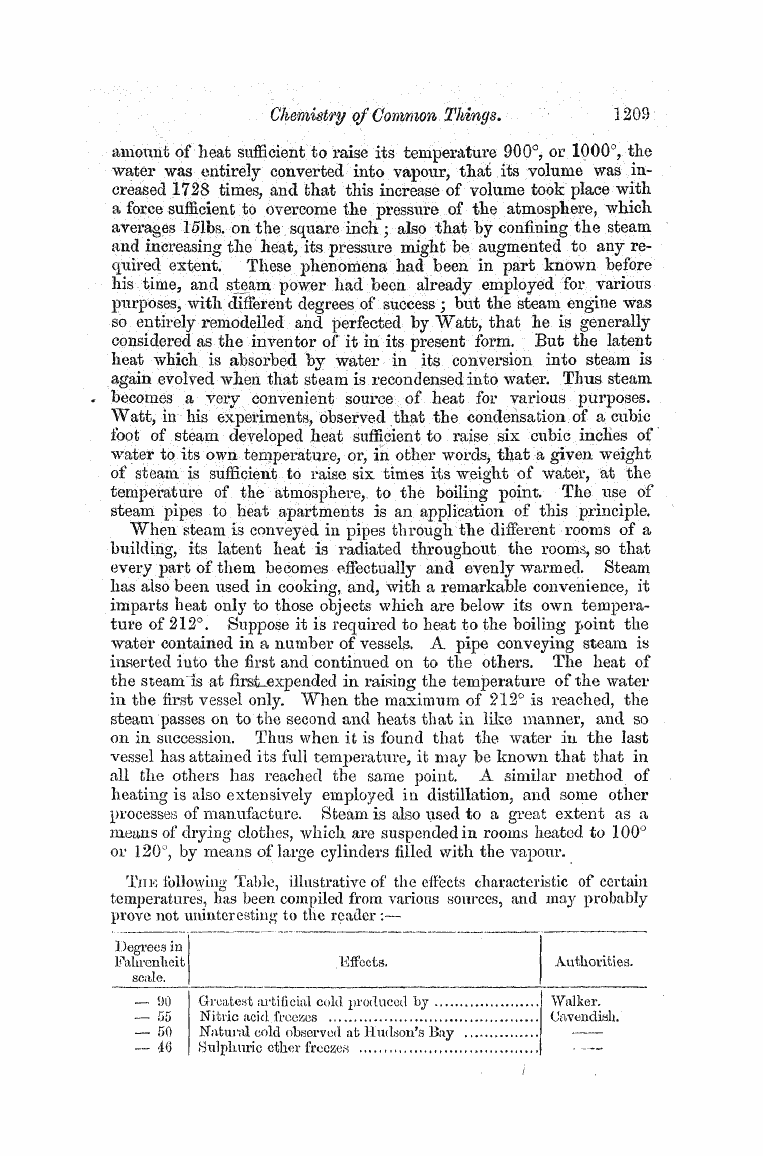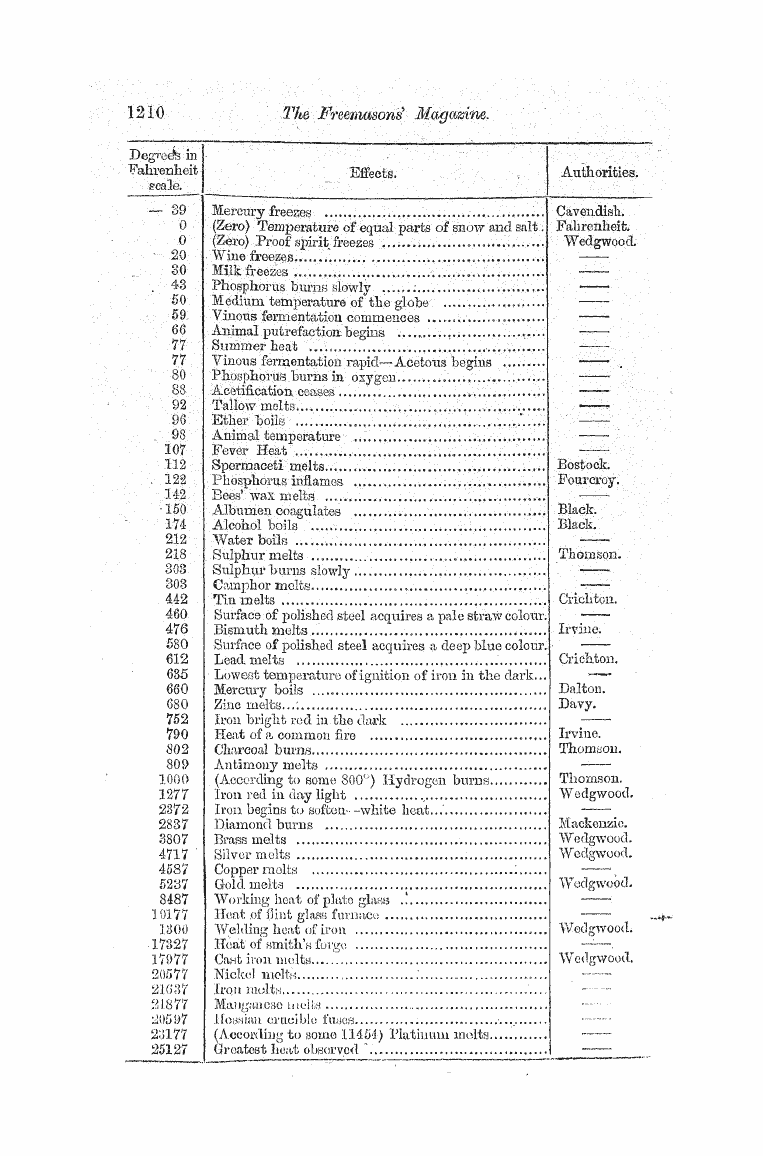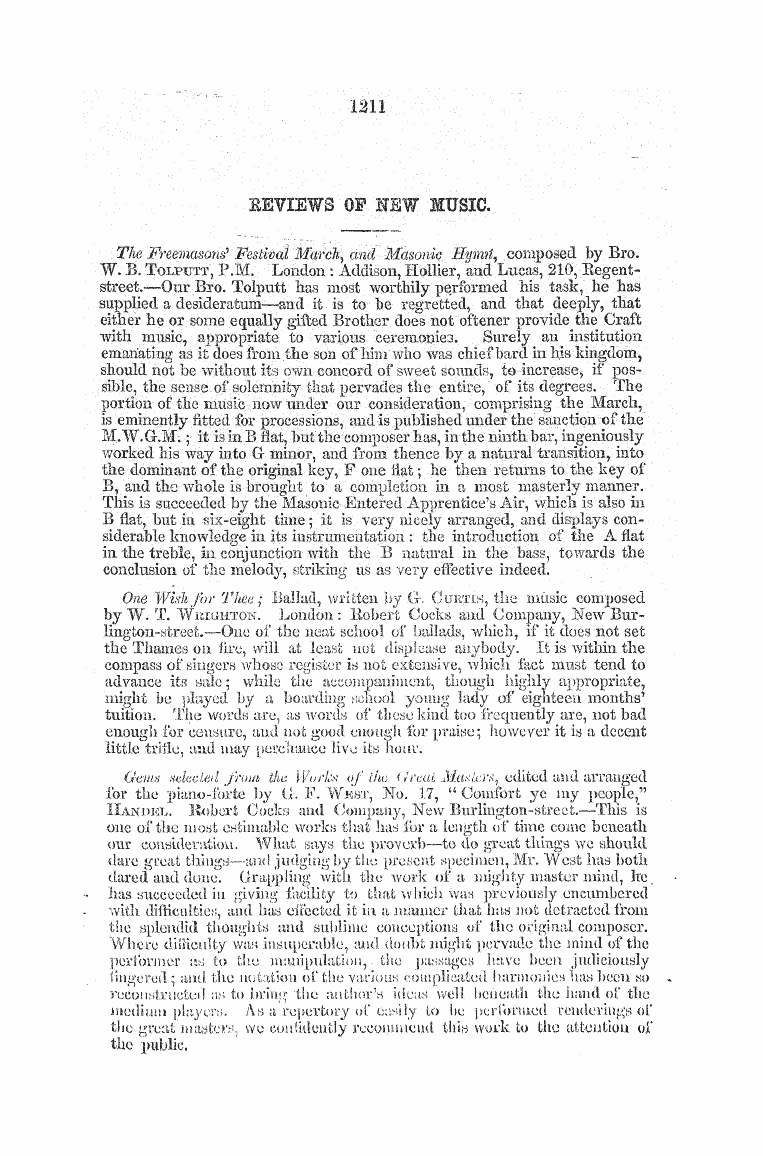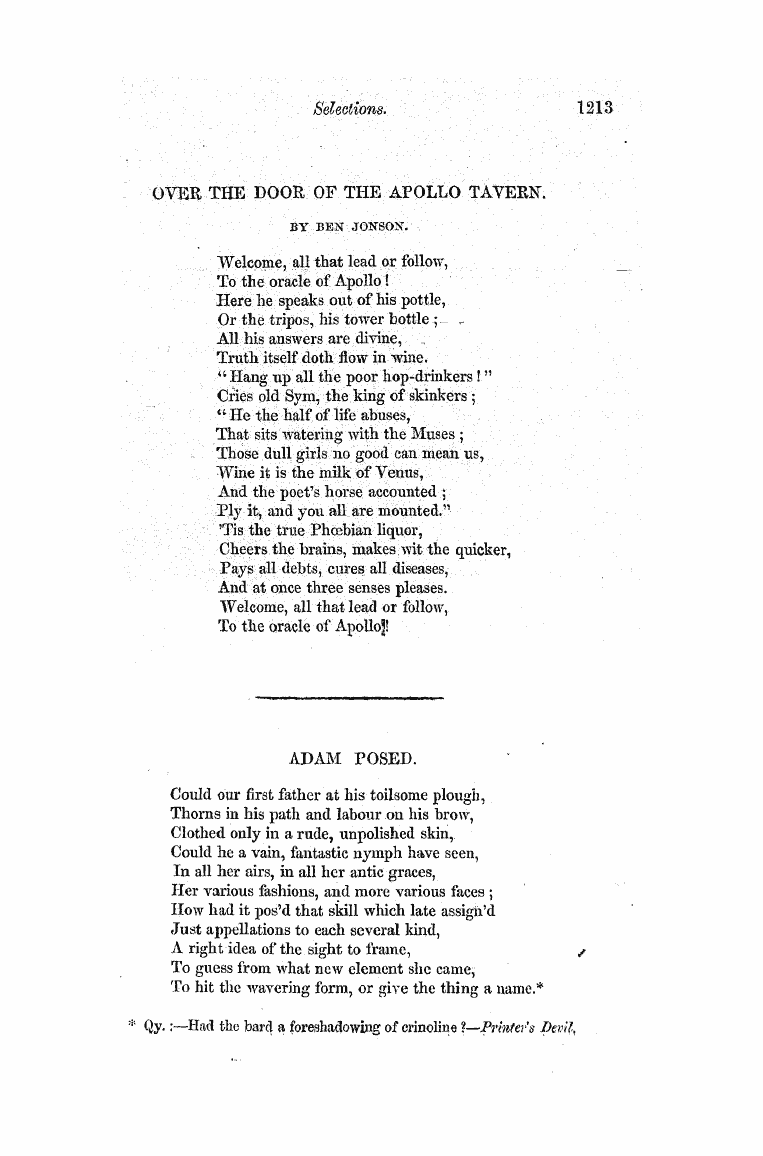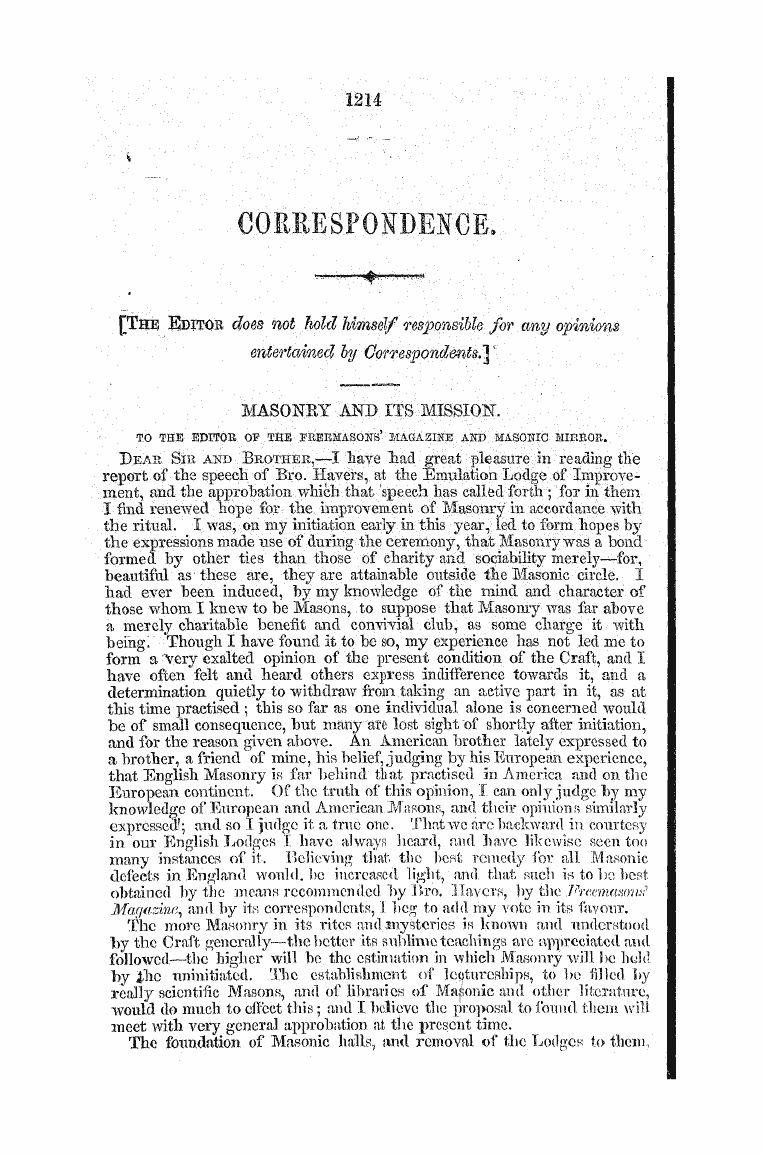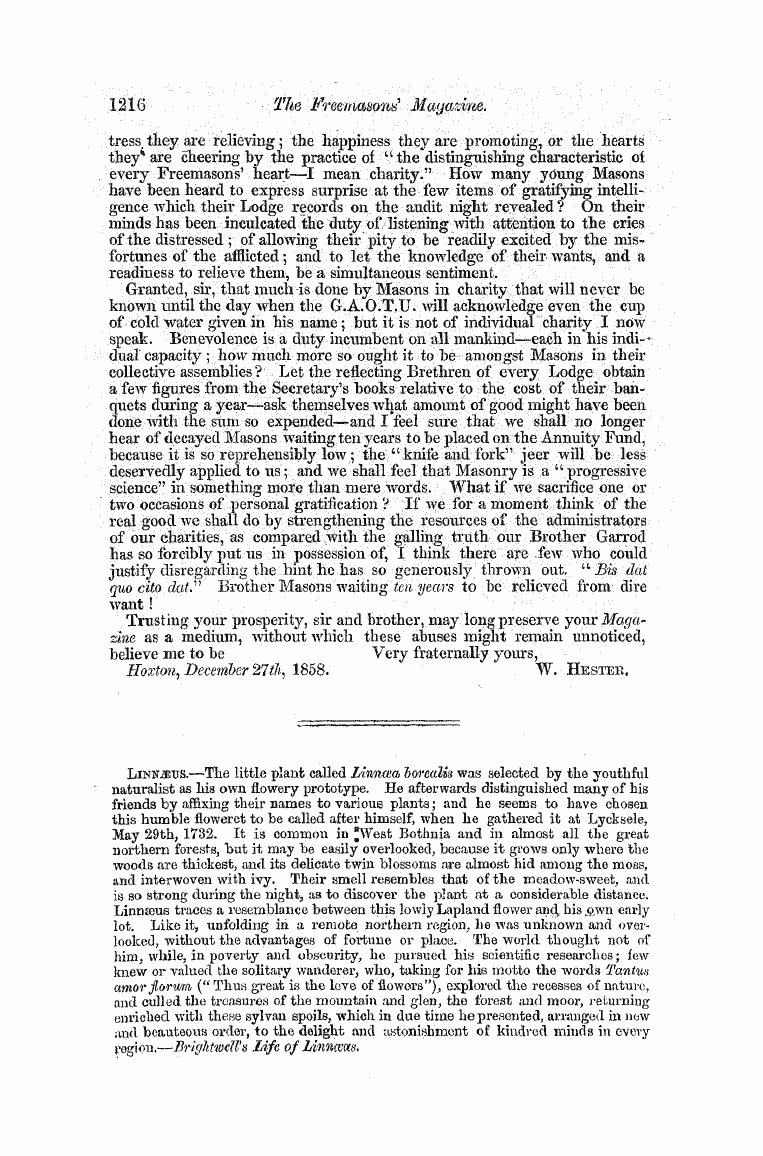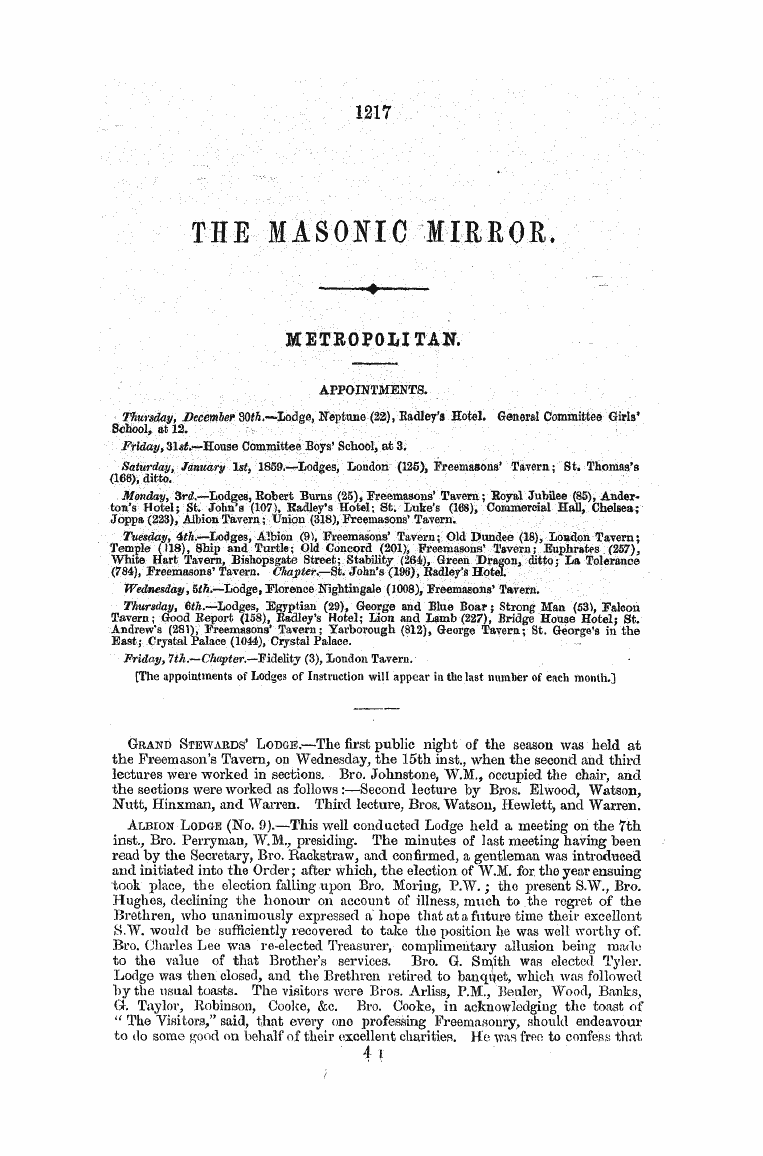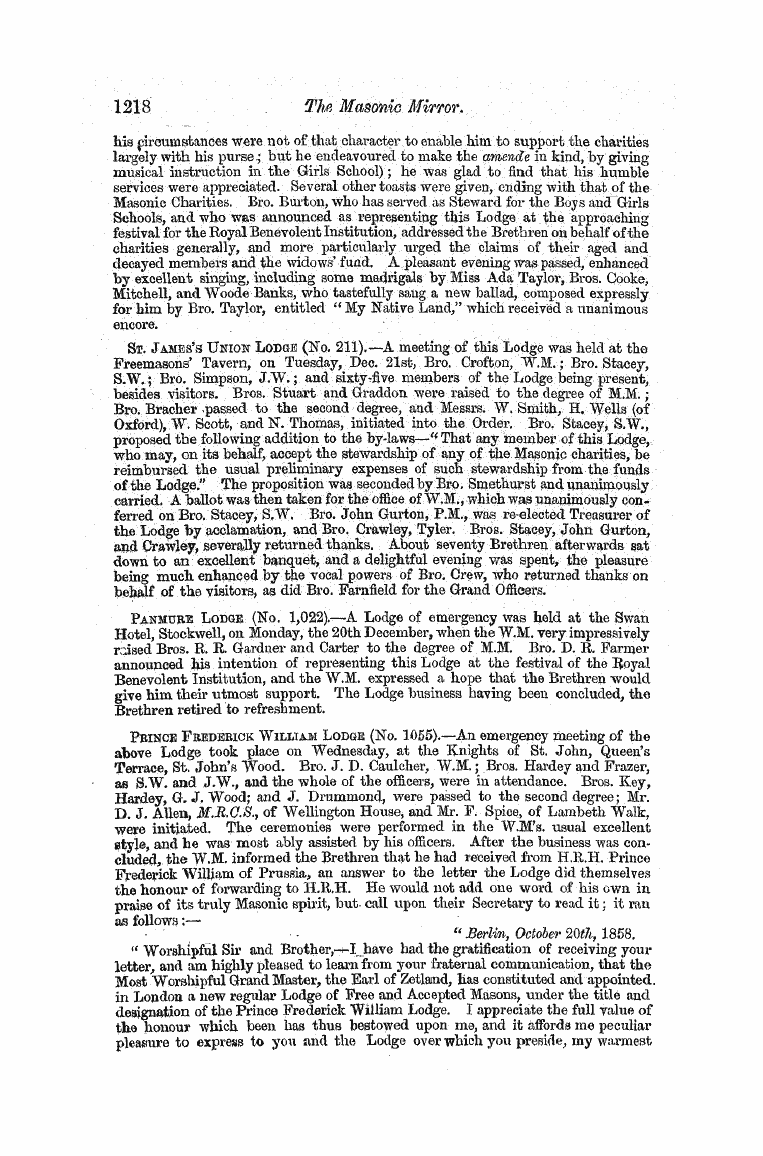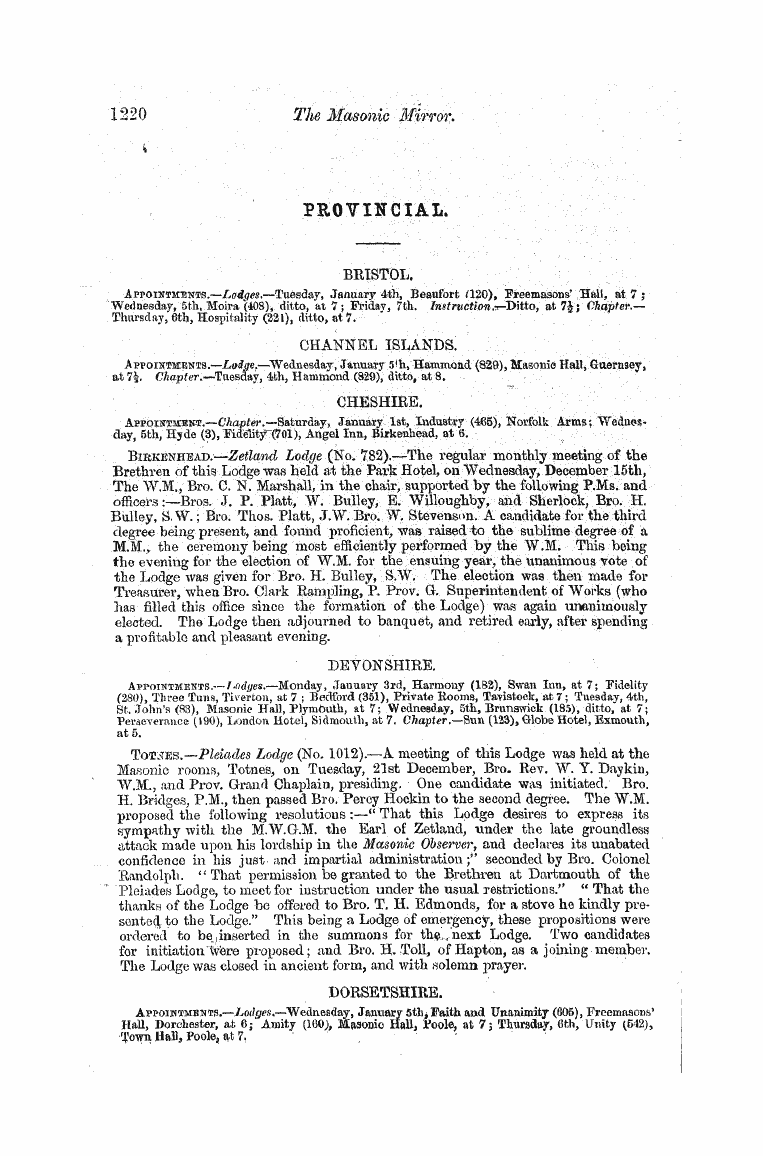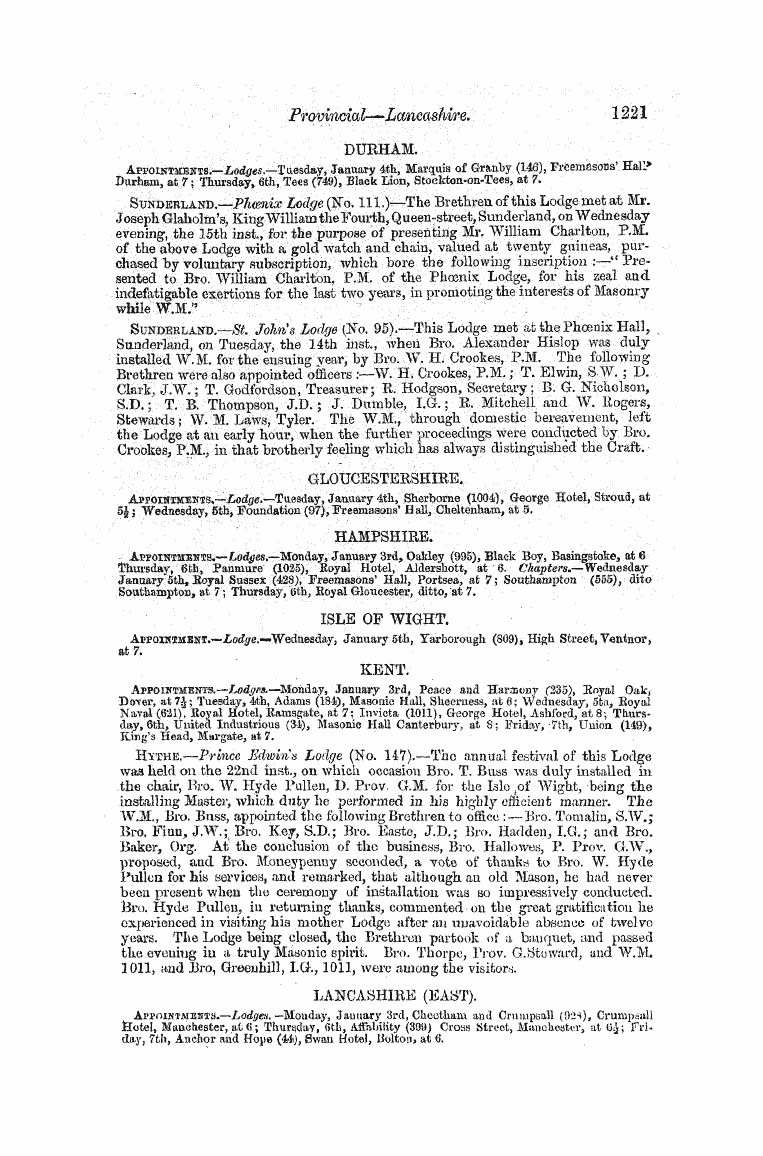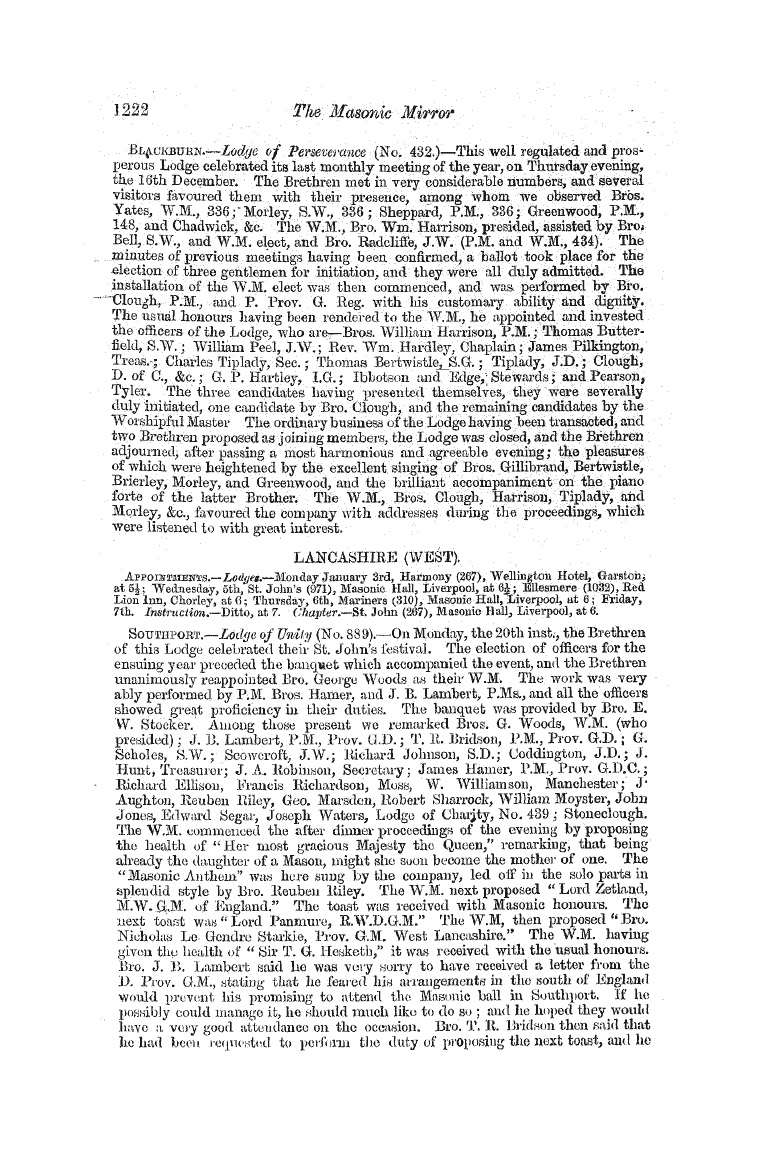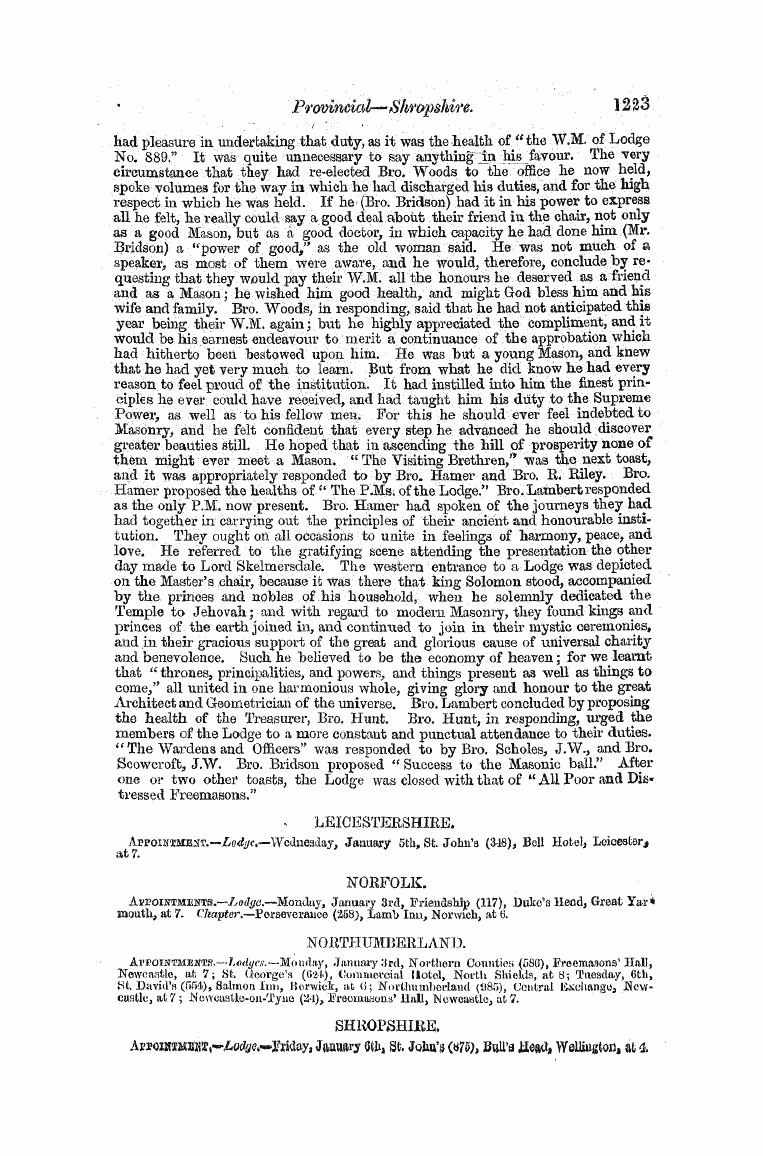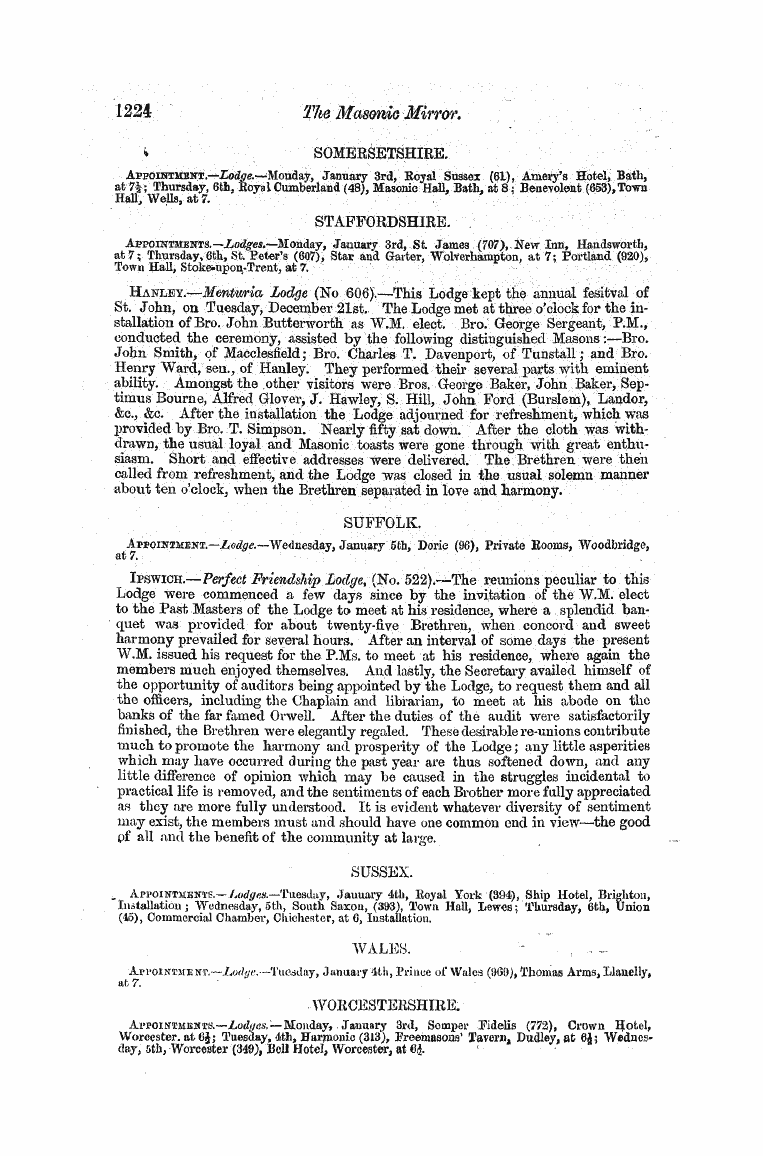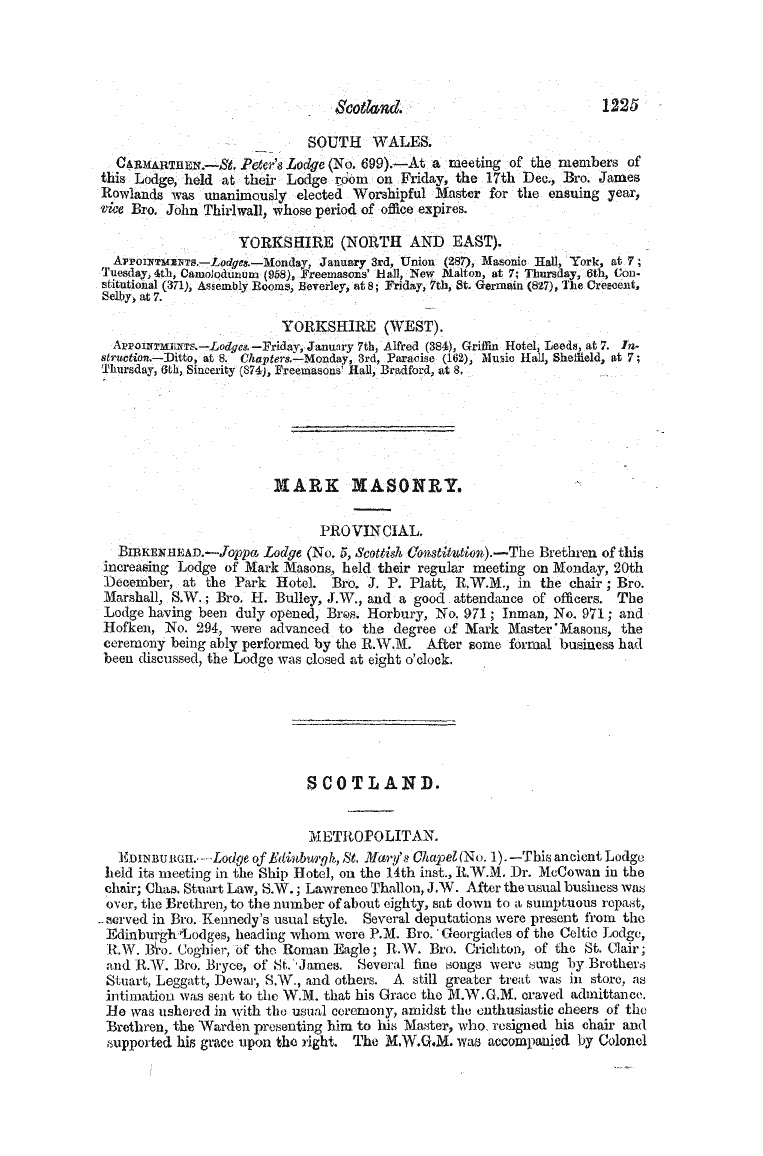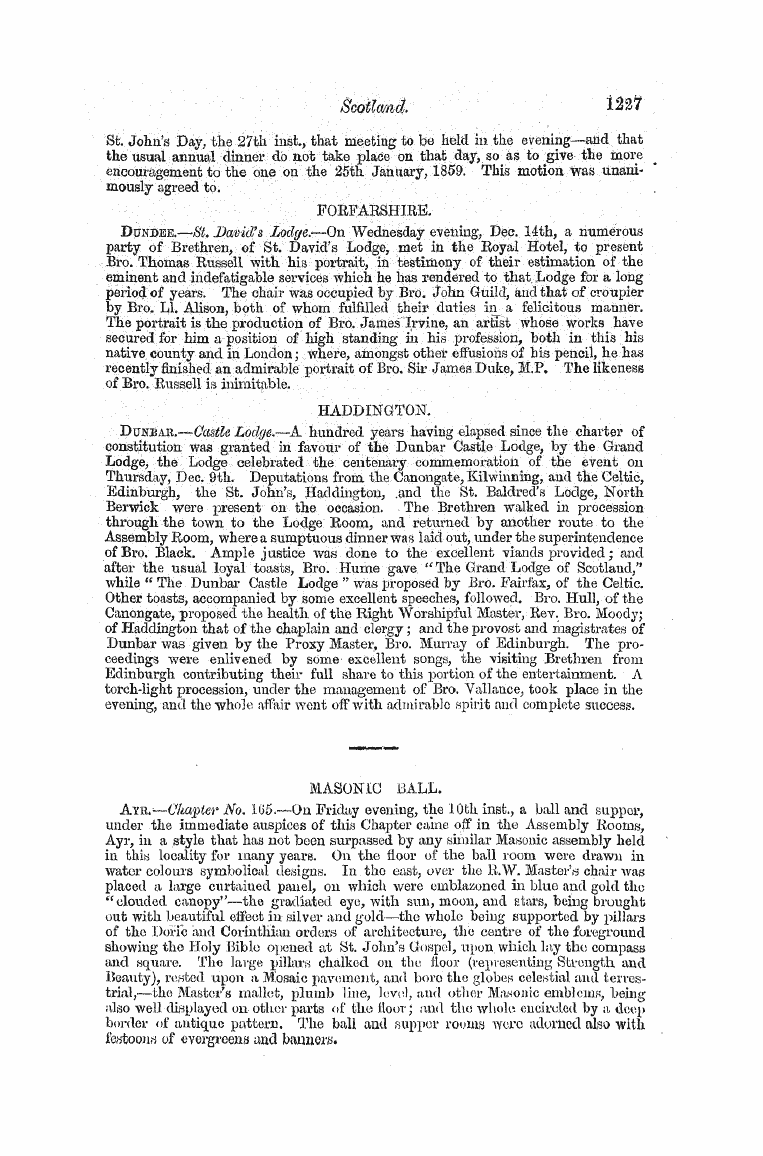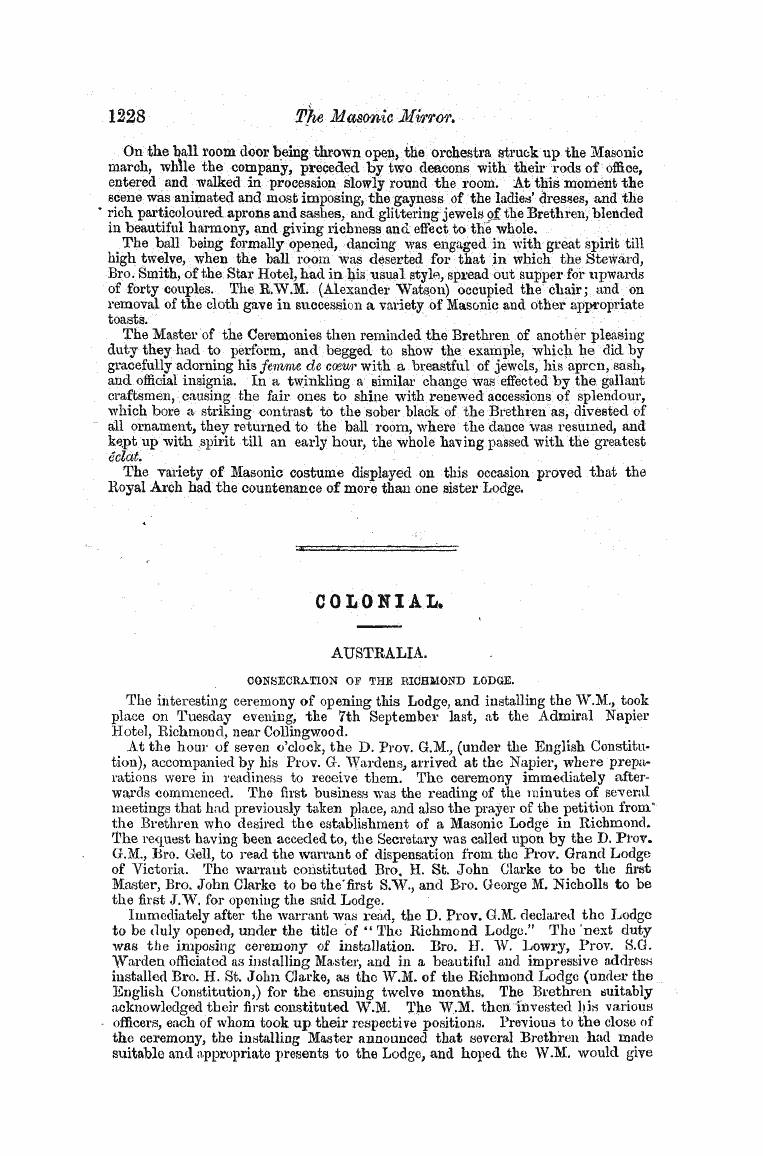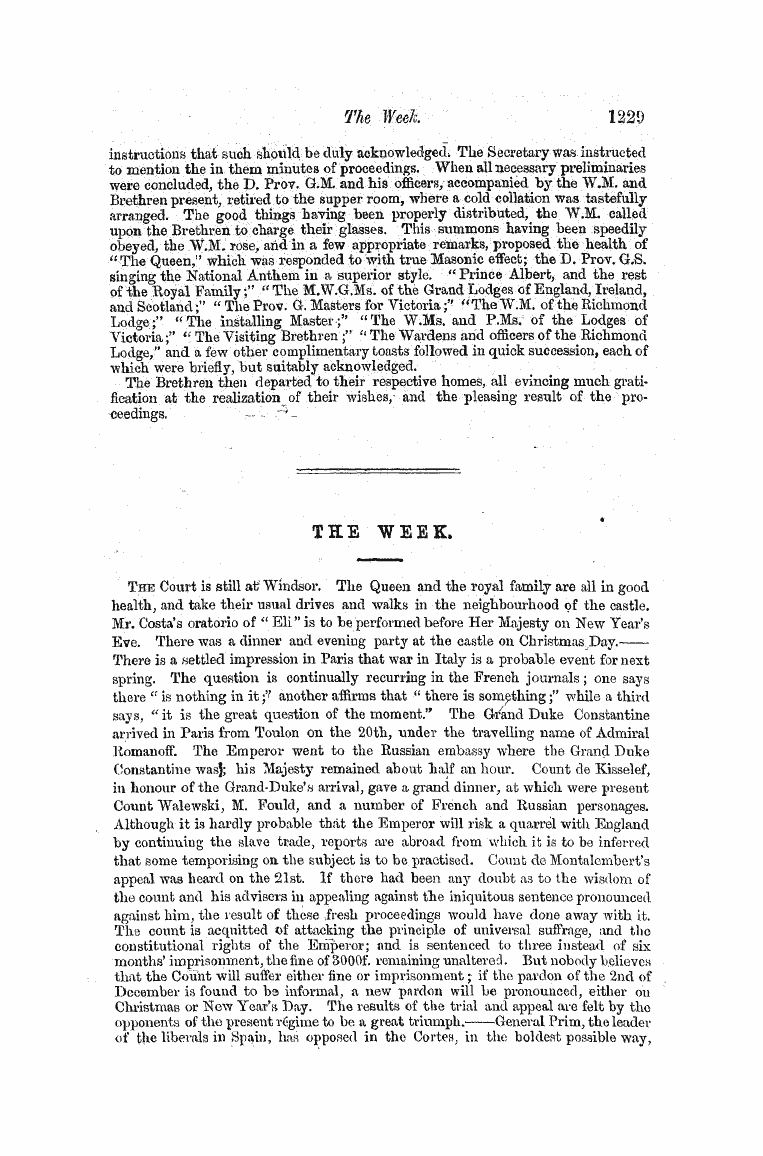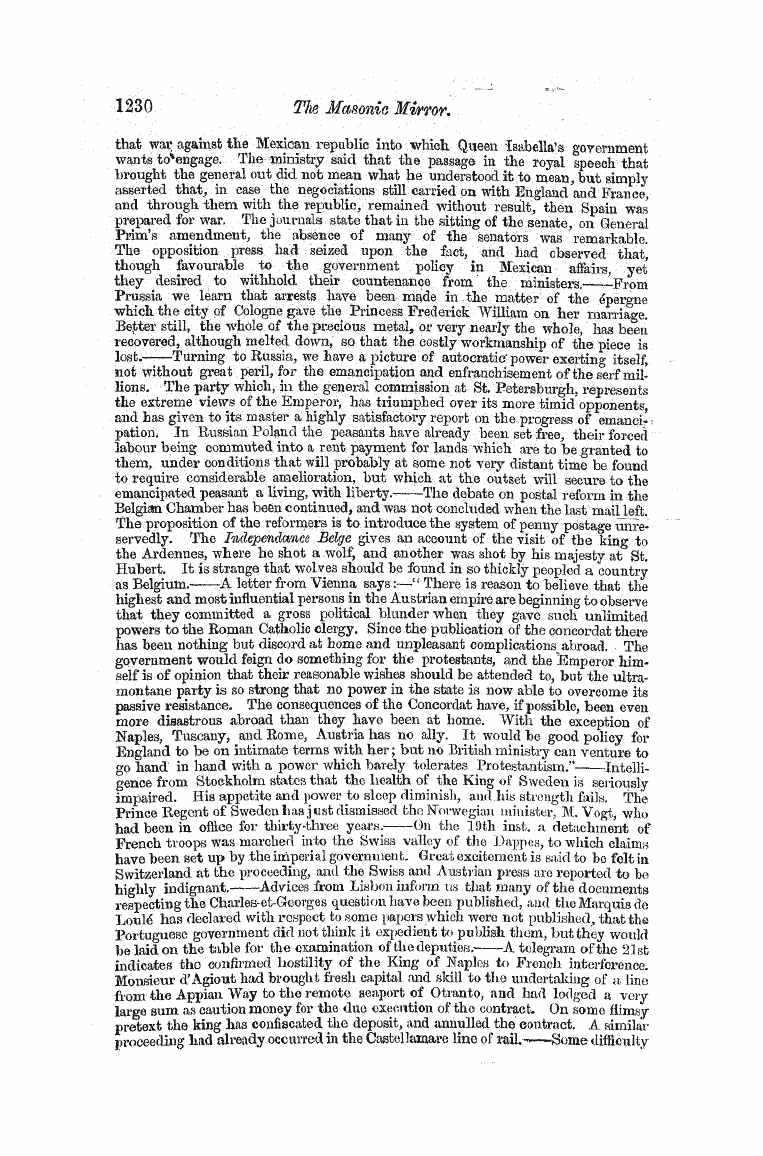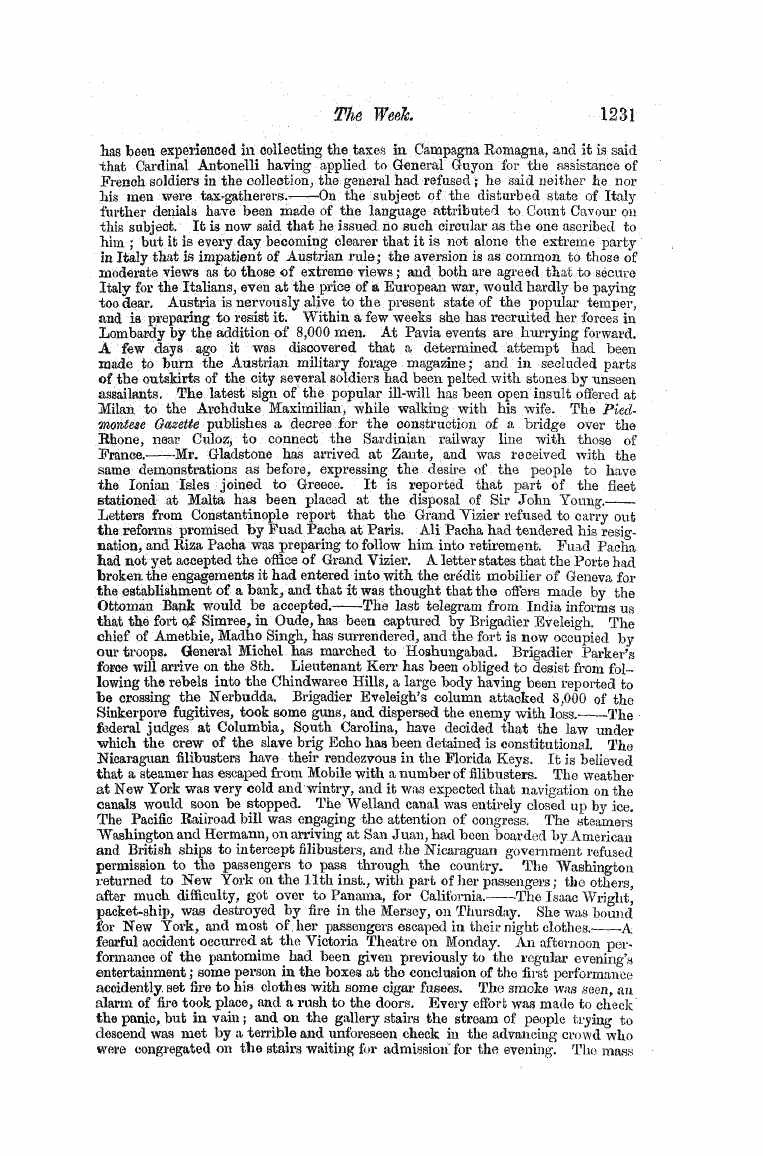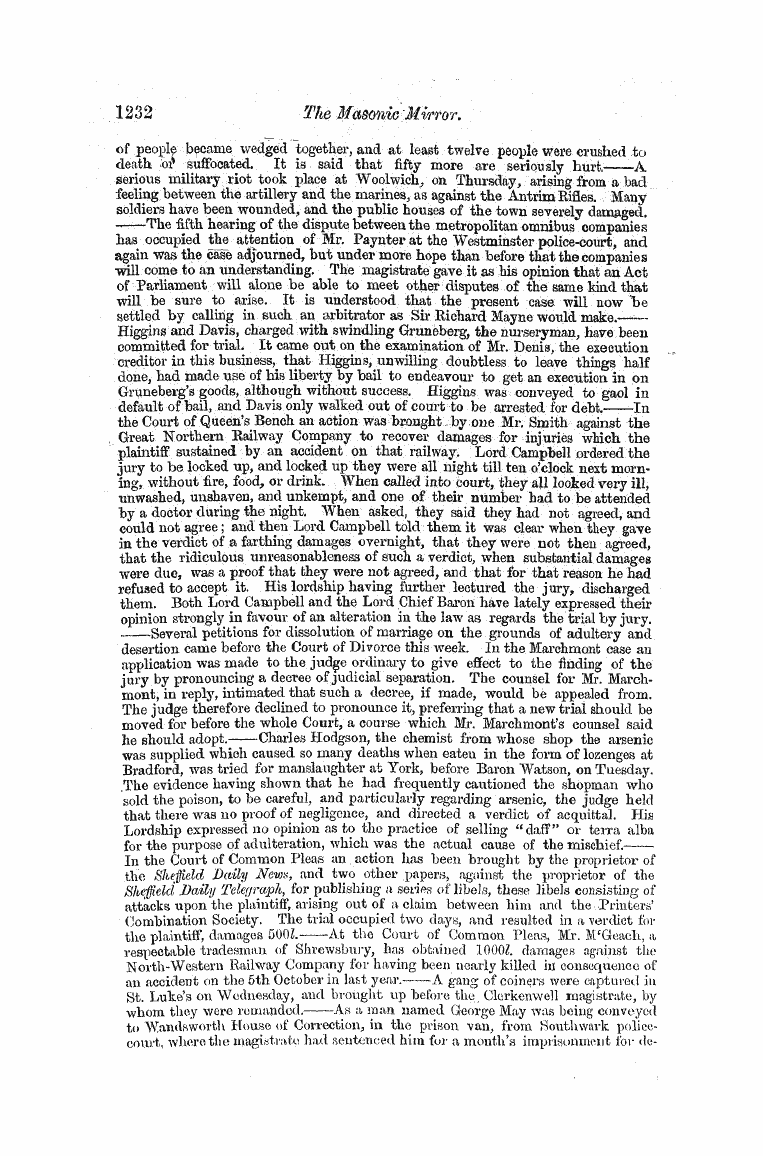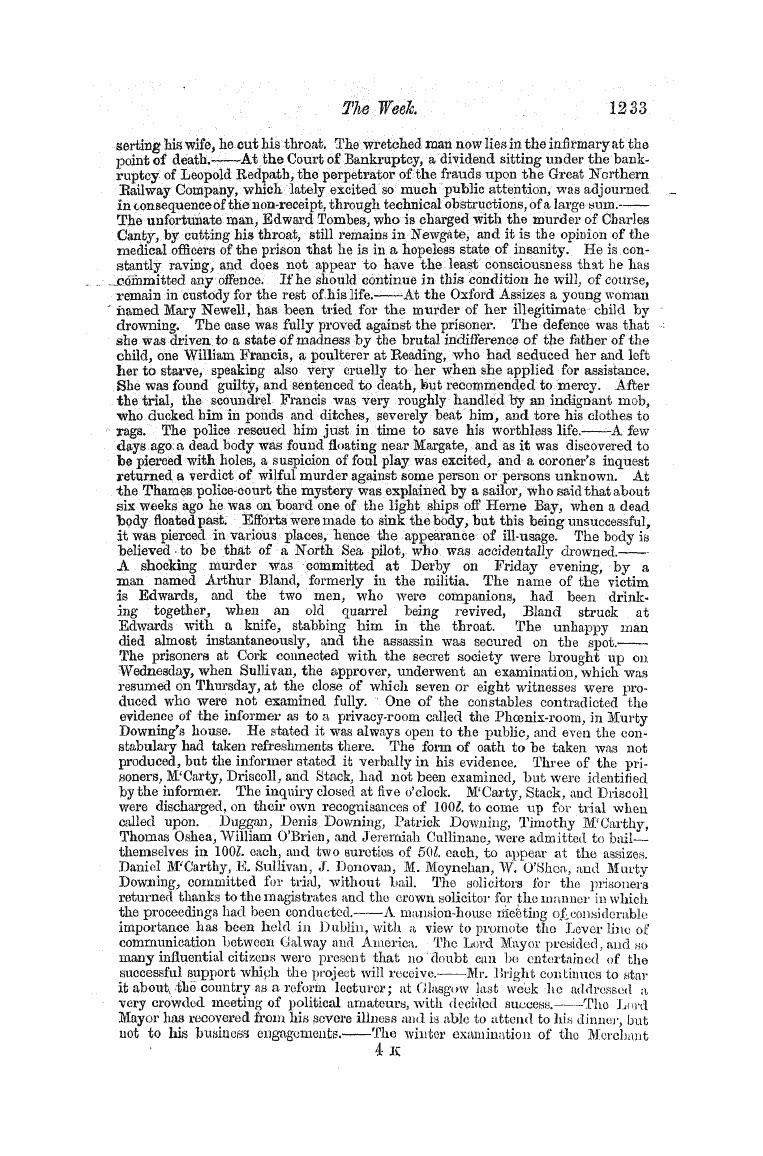-
Articles/Ads
Article THE TEACHINGS OP FREEMASONRY. ← Page 3 of 4 →
Note: This text has been automatically extracted via Optical Character Recognition (OCR) software.
The Teachings Op Freemasonry.
humility , in a mind of lowliness - and he finds \^ the laws of the society have abolished , ^ adventitious distinctions .
So again the plumb rule , an instrument of art by whose apphcation the building is raised in a perpendicular direction , is another of our symbols . It is figurative of a fair and honourable plan of life > and typically cautions us against any deviation from an upright conduct in all our intercourses and transactions ^ w ^
The compass we adopt as an emblem of prudence . It instructs us to put moral restraints on our appetites j to circumscribe within rational bounds our wants , our pleasures , our expenses- ^ waaming us that by an opposite course we shall endanger our quiet , our health our reputation , and our liberty .
Freemasonry deals in hieroglyphics , ^ ^^ andy to be qilalified to reveal their more than a mere nominal Mason : th like that of the mysteries of old , is in select hands ^~ it has been committed only to those of tried fidelity , who conceal it with suitable
care . Others , if > not deficient in intellect , yet wanting industry or inclina , tion to explore the penetralia of the Temple , are not qualified , if willing , to betray it . Hence the secrecy which has so long distinguished the fraternity . This secrecy , however , has been urged against our institution a $ a crime ; but the wise know that secrecy properly maintained is one of the best securities of social happiness .
Other objections have been invented against our society , such as we do not condescend to combat—deeming it altogether a waste of time to wage war with surmises , and trusting to our conduct to repel the coarser shafts of malice . The doctrines of Freemasonry embrace all the natural , moral , and political obligations of society . It directs us to fulfil our duty to our
God , our king , our neighbour , and ourselves ; it inculcates reverence , resignation , and gratitude to Him who made and preserved us—obedience and loyalty to the sovereign , who injustice and clemency , rules over us- —courtesy and amity to our neighbour—equity and compassion to all mankind . It teaches us to pity and forgive our enemies , to love and reward our friends , to relieve the distressed , and cherish the
neglected . Masonry is confined to no form of faith nor sect of religion ; and her charity , like her creed , is universal . So , too , as she rejects all bigotry in matters of faith , she nourishes no blind zeal on the subject of politics , nor affords any support to civil discord or popular commotion . Private benevolence , in its extended operation becomes patriotism , which is , in fact , public benevolence . From liberality of
thinking and . acting towards individuals , Masonry is propitious to general liberty—but it is liberty void of licentiousness . The grand principles of our Order are those of peace , patience , and good will ; they hold out no encouragement to faction , no extenuation of private defamation and slander . As concerns the welfare of the state , our wishes , like those of all good members of tho cpmmunity , are for
Note: This text has been automatically extracted via Optical Character Recognition (OCR) software.
The Teachings Op Freemasonry.
humility , in a mind of lowliness - and he finds \^ the laws of the society have abolished , ^ adventitious distinctions .
So again the plumb rule , an instrument of art by whose apphcation the building is raised in a perpendicular direction , is another of our symbols . It is figurative of a fair and honourable plan of life > and typically cautions us against any deviation from an upright conduct in all our intercourses and transactions ^ w ^
The compass we adopt as an emblem of prudence . It instructs us to put moral restraints on our appetites j to circumscribe within rational bounds our wants , our pleasures , our expenses- ^ waaming us that by an opposite course we shall endanger our quiet , our health our reputation , and our liberty .
Freemasonry deals in hieroglyphics , ^ ^^ andy to be qilalified to reveal their more than a mere nominal Mason : th like that of the mysteries of old , is in select hands ^~ it has been committed only to those of tried fidelity , who conceal it with suitable
care . Others , if > not deficient in intellect , yet wanting industry or inclina , tion to explore the penetralia of the Temple , are not qualified , if willing , to betray it . Hence the secrecy which has so long distinguished the fraternity . This secrecy , however , has been urged against our institution a $ a crime ; but the wise know that secrecy properly maintained is one of the best securities of social happiness .
Other objections have been invented against our society , such as we do not condescend to combat—deeming it altogether a waste of time to wage war with surmises , and trusting to our conduct to repel the coarser shafts of malice . The doctrines of Freemasonry embrace all the natural , moral , and political obligations of society . It directs us to fulfil our duty to our
God , our king , our neighbour , and ourselves ; it inculcates reverence , resignation , and gratitude to Him who made and preserved us—obedience and loyalty to the sovereign , who injustice and clemency , rules over us- —courtesy and amity to our neighbour—equity and compassion to all mankind . It teaches us to pity and forgive our enemies , to love and reward our friends , to relieve the distressed , and cherish the
neglected . Masonry is confined to no form of faith nor sect of religion ; and her charity , like her creed , is universal . So , too , as she rejects all bigotry in matters of faith , she nourishes no blind zeal on the subject of politics , nor affords any support to civil discord or popular commotion . Private benevolence , in its extended operation becomes patriotism , which is , in fact , public benevolence . From liberality of
thinking and . acting towards individuals , Masonry is propitious to general liberty—but it is liberty void of licentiousness . The grand principles of our Order are those of peace , patience , and good will ; they hold out no encouragement to faction , no extenuation of private defamation and slander . As concerns the welfare of the state , our wishes , like those of all good members of tho cpmmunity , are for































































































































































































